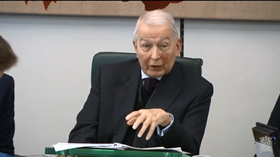Auditors, government and regulators all come under fire

Carillion’s directors are not the only ones who failed to stop the contractor’s collapse, according to the MPs who ran an inquiry into the events leading to the firm’s liquidation.
The joint parliamentary committee inquiry into Carillion’s failure, levelling blame at plenty of people not directly employed by the firm.
While ex-chief executive Richard Howson, former finance boss Richard Adam and chairman Philip Green bore the brunt of the MPs’ wrath, auditors, government, regulators and advisors have all come under fire.
AUDITORS
KPMG, Carillion’s external auditor, was slammed in the findings with MPs saying there was “a danger of a crisis of confidence in the audit profession” following the firm’s failure.
The firm, which was paid £29m for its 19 year tenure as auditor, was described as “complacent” and “complicit” in Carillion’s accounting judgements.
MPs also questioned KPMG’s impartiality, saying: “Such a long tenure inevitably calls into question whether they could provide the independence and objectivity that is crucial to high-quality audit.”
Deloitte – the collapsed contractor’s internal auditor – also came under fire, with MPs saying the firm was either “unable to identify effectively to the board the risks associated with their business practices, unwilling to do so, or too readily ignored them”.
The inquiry – led by Rachel Reeves and Frank Field (pictured) – criticised the audit market as a whole, saying: “KPMG’s audits of Carillion were not isolated failures, but symptomatic of a market which works for the Big Four firms but fails the wider economy.”
MPs said this should consider both breaking up the Big Four into more audit firms, and detaching audit arms from those providing other professional services.
ADVISORS
While Carillion’s board hired an array of big name advisors it did nothing to promote the contractor’s survival, according to the MPs behind the inquiry
The report said: “Carillion’s directors were supported by an array of illustrious advisory firms. Names such as Slaughter and May, Lazard, Morgan Stanley and EY were brandished by the board as a badge of credibility.
“But the appearance of prominent advisors proves nothing other than the willingness of the board to throw money at a problem and the willingness of advisory firms to accept generous fees.
“Advisory firms are not incentivised to act as a check on recklessly run businesses. A long and lucrative relationship is not secured by unduly rocking the boat.”
MPs said the few firms who were willing to provide advice that went against the grain, such as Morgan Stanley who said opportunity to raise equity to keep the company afloat had passed, were ignored. “Carillion simply marginalised them and sought a second opinion.”
The inquiry found £6.4m was paid out to advisors on the last business day – 12 January – Carillion was solvent.
The report said: “Chief among the beneficiaries was EY, paid £10.8m for its six months of failed turnaround advice as Carillion moved inexorably towards collapse.”
REGULATORS
Both the Financial Reporting Council and the Pensions Regulator were both criticised for their failure to act before Carillion’s collapse.
The inquiry said the Pensions Regulator had a “feeble response to the underfunding of Carillion’s pension schemes” and “failed in all its objectives regarding the Carillion pension scheme”, while “the FRC was far too passive in relation to Carillion’s financial reporting”.
While saying government must act to give the regulators more powers, the inquiry found there was a lack of proactivity from both the Pensions Regulator and the FRC.
The 100-page report on the findings said: “Chronically passive, they do not seek to influence corporate decision-making with the realistic threat of intervention. Action is part of their brief. They require cultural change as well.”
CROWN REPRESENTATIVES/GOVERNMENT
Aside from failing to provide corporate regulators with sufficient powers to pull Carillion into line, the inquiry found government failed to identify the risks involved with continuing to issue the failing contractor with new contracts.
The firm, which had no Crown Representative between August and November 2017, continued to win public sector work despite three profit warnings.
The report said: “The assignment of a Crown Representative to Carillion served no noticeable purpose in alerting the government to potential issues in advance of [Carillion’s] July 2017 profit warning.
“The absence of one between August and November 2017 cannot have increased the government’s ability to keep itself informed of the direction of the company during a critical period before its collapse.”
The inquiry said while government was right to refuse a bailout for the firm in its final days, the level of exposure was sure to have a significant impact on public finances.
The report said: “When a company holds 450 contracts with the government, however, its collapse will inevitably have a significant knock-on effects for the public purse.
“It is simply not possible to transfer all the risk from the public to the private sector. There is little chance that the £150m of taxpayer money made available to support the insolvency will be fully recovered.”



























No comments yet